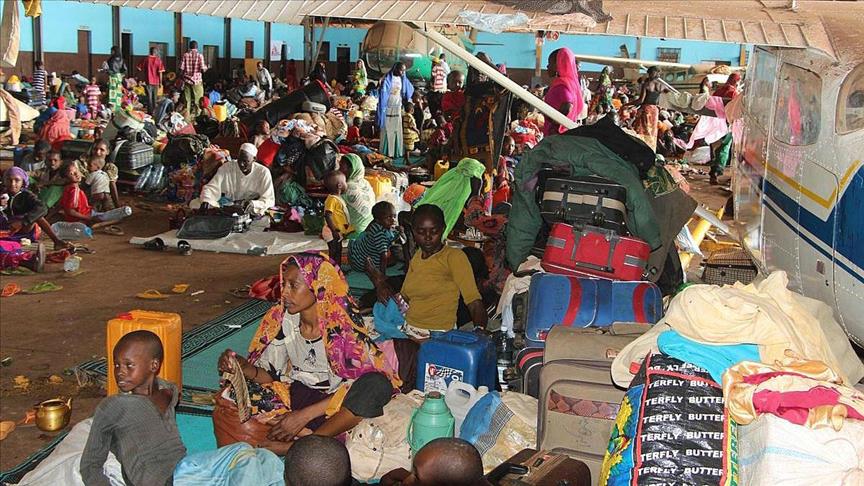‘False promises’ for African refugees deported by Israel
Despite Israeli promises, deported African migrants have documents confiscated, face arrest in Rwanda, Uganda

JERUSALEM
African refugees deported by Israel to Uganda and Rwanda find themselves left vulnerable because of “false promises” of help from Israeli authorities, according to a report released Monday.
Israel-based activists Hotline for Refugees and Migrants (HRM) found that promises made by Israeli officials of accommodation and documentation were not kept and the refugees' papers were confiscated on arrival.
Instead of being allowed to work and live openly, the report says that numerous migrants testified to being forced to stay within hotels or live without documentation, which led to many being arrested by Rwandan or Ugandan authorities.
Israel deports African refugees under its “voluntary departure” program which compels refugees who do not wish to return to their home country to go to Uganda or Rwanda or face indefinite detention in an Israeli prison.
The details of Israel’s agreements with Rwanda and Uganda have not been made public and Israeli human rights groups have complained that there is no monitoring system to protect the refugees after they have left Israel.
The report quoted the testimony of one refugee, identified as “M.B.”, describing how they and other refugees were told by Rwandan authorities that their asylum applications would not be accepted as they had come from Israel, forcing them to travel to other countries for fear of being arrested.
“Shishai, the immigration officer, told me that Rwanda was good, there are opportunities to learn, that there’s work,” said M.B. in the report. “[But in reality], no matter where I am, no one wants to accept me because I came from Israel. I don’t know what will happen now.”
In November, Israeli activists, led by Tel Aviv University’s Refugee Rights Clinic, filed a petition asking the Supreme Court to overturn the ruling allowing the indefinite detention of asylum seekers refusing to be deported.
In a joint-statement, the groups said Israel “cannot avoid its obligations by relying on promises of the recipient state, even more so when the conditions of the agreement are classified and not publically released.”
According to HRM, there are 45,000 African asylum seekers in Israel, with the majority coming from Eritrea or Sudan.
Israeli newspaper Haaretz reported in February that only four from Eritrea, and none from Sudan, have been recognized as refugees.
Anadolu Agency website contains only a portion of the news stories offered to subscribers in the AA News Broadcasting System (HAS), and in summarized form. Please contact us for subscription options.







